#british playwrights
Text
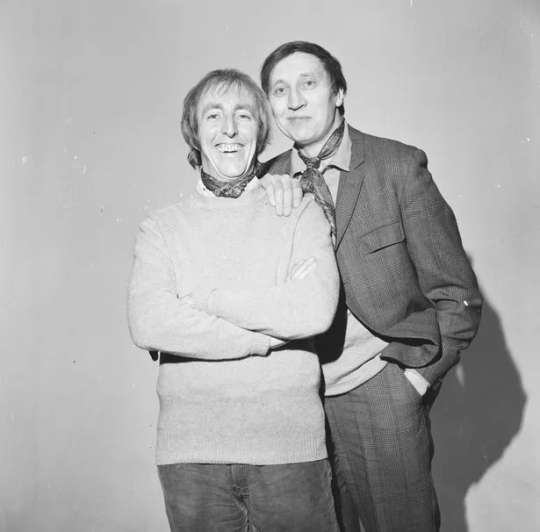


Remembering Stephen Lewis, merchant seamen turned actor and writer, who passed away August 12th, 2015.
Born in Poplar, East London, in 1926, he initially went to sea, before joining Joan Littlewood's Theatre Workshop, where he made his West End debut in The Hostage, by Brendan Behan, in 1958.
He wrote Sparrers Can't Sing, a play performed in broad cockney with significant improvisation, which was adapted as a feature film in 1963.

According to Variety:
"…The film is based on a play that (Joan Littlewood) staged at the Theatre Workshop. She and the author of the play, Stephen Lewis, collaborated on the loose screenplay and Littlewood surrounds herself with most of the Workshop cast. She also operates almost entirely on location in the East End that she knows and clearly loves so well…Much of the dialog, which is rather salty, appears to have been made up off the cuff of the players. This shows up dangerously in the intimate scenes, but gives gusto to others..."
Stephen Lewis later found lifelong fame as Blakey in LWT's On the Buses, on television and in three movie adaptations by Hammer, which went on to be some of the most profitable British feature films of the early 1970s. He wrote 12 episodes of On the Buses with co-star Bob Grant, as well their segment for the 1972 ITV Christmas special, All Star Comedy Carnival, and IMDb lists him as a contributing writer for the anthology series Armchair Theatre (Thames/ITV) and Comedy Playhouse (BBC).
He reprised the character of Blakey in the On the Buses spinoff, Don't Drink the Water (1974-75), with Blakey having retired to Spain with his sister, played by Pat Coombs.
He popped up on British television over the years with the occasional cameo, and appeared in David Croft and Richard Spendlove's Oh Doctor Beeching (1995-97), and in 135 episodes of Last of the Summer Wine.
Unlike Bob Grant, who struggled with the legacy of his On the Buses stardom and subsequent typecasting, with ultimately tragic consequences, Stephen Lewis happily embraced his persona to the very end...and beyond.
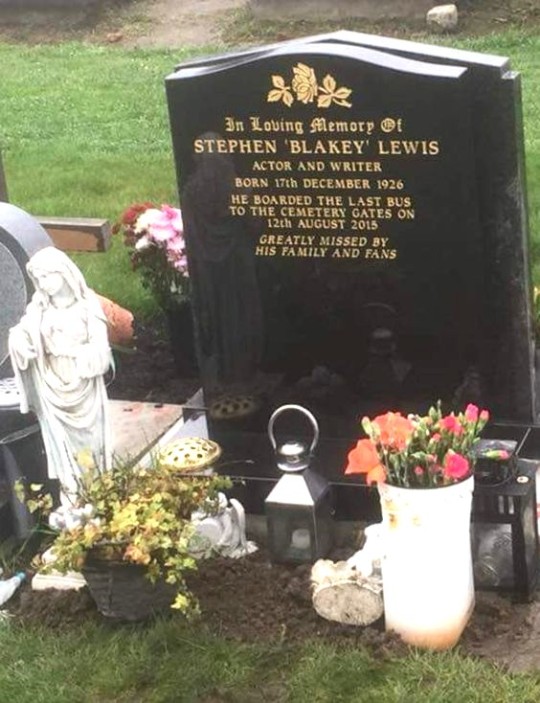
(This image: 70s Time Machine. Other Background from IMDb, Variety and The Guardian)
See also:
#social history#working class history#on the buses#london weekend television#british comedy#british television#british culture#classic tv#british theatre#british playwrights#british cinema
16 notes
·
View notes
Text
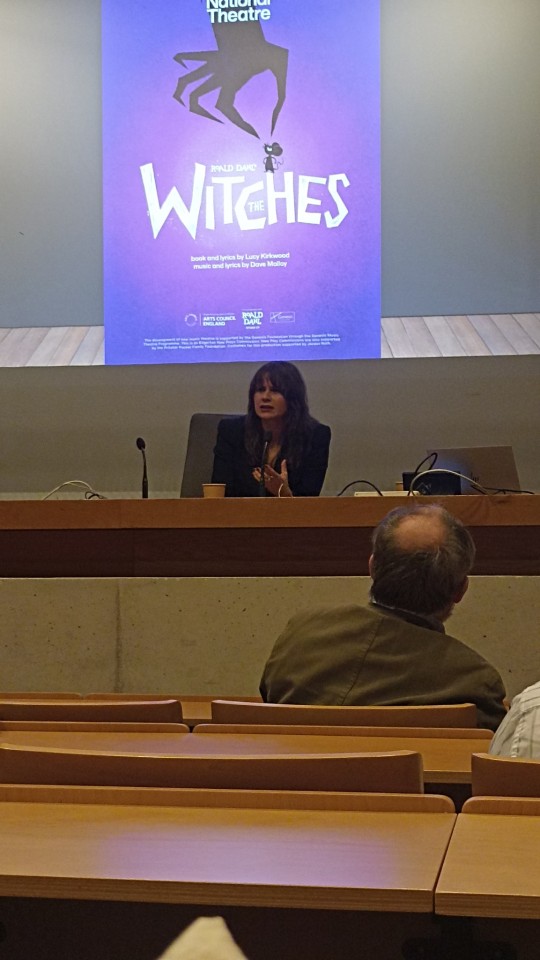

I had the opportunity to hear a talk with Lucy Kirkwood at my university last week! She talked about her new projects, The Witches (musical adaptation of the Roald Dahl novel) and The Human Body (play about the beginnings of the NHS). I even got to ask a question!
#lucy kirkwood#lucy my love 💖#she talks so fast she could be in Gilmore Girls#british playwrights#national theatre#the witches#the human body#the welkin#the children#rapture
1 note
·
View note
Text
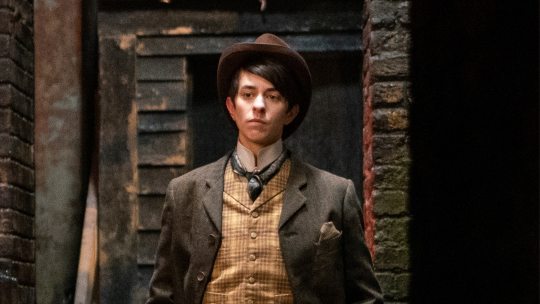
Vinnie Heaven
Gender: Transgender non binary (they/them)
Sexuality: Queer
DOB: N/A
Ethnicity: White - British
Occupation: Actor, playwright, writer
#Vinnie Heaven#enby#lgbt#lgbtq#queerness#transgender#non binary#queer#white#british#writer#playwright#actor
35 notes
·
View notes
Text
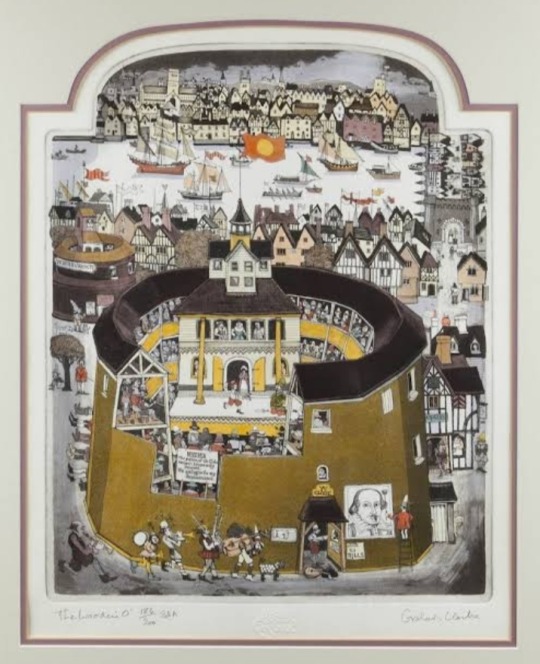
Shakespeare's Globe Theatre.
The story of Globe Theatre started with William Shakespeare's acting company, Lord Chamberlain's Men.
William Shakespeare (baptized 26 April 1564 – 23 April 1616) was a part-owner or sharer in the company, as well as an actor and resident playwright.
From its inception in 1594 AD, Lord Chamberlain's Men performed at Theatre, a playhouse located in Shoreditch.
However, by 1598, their patrons, including Earl of Southampton, had fallen out of favour with the Queen.
Theatre's landlord, Giles Alleyn, had intentions to cancel the company's lease and tear the building down.
While Alleyn did own the land, he did not own the materials with which the theatre had been built.
So, on 28 December 1598, after leasing a new site in Southwark, Cuthbert and Richard Burbage led the rest of the company of actors, sharers, and volunteers in taking the building down, timber by timber, loading it on to barges, and making their way across Thames.
Working together, the actors built the new theatre as quickly as they could.
The ground on the new site was marshy and prone to flooding, but foundations were built by digging trenches, filling them with limestone, constructing brick walls above stone, and then raising wooden beams on top of that.
A funnel caught rainwater and drained it into ditch surrounding the theatre and down into Thames.
The theatre was 30m in diameter and had 20 sides, giving it its perceived circular shape.
Structure was similar to that of their old theatre, as well as that of the neighbouring bear garden.
The rectangular stage, at 5ft high, projected halfway into the yard and circular galleries.
Pillars were painted to look like Italian marble, sky painted midnight blue, and images of gods overlooked balcony. It could hold up to 3,000 people.
By May 1599, the new theatre was ready to be opened.
Burbage named it Globe after the figure of Hercules carrying the globe on his back — for in like manner, the actors carried Globe's framework on their backs across Thames.
A flag of Hercules with globe was raised above theatre with Latin motto: 'totus mundus agit histrionem' ('all the world's a playhouse').
Shakespeare's plays that were performed there early on included:
Henry V, Julius Caesar, As You Like It, Hamlet, Measure for Measure, Othello, King Lear, Macbeth, and Antony and Cleopatra.
Here, the Lord Chamberlain's Men enjoyed much success and gained the patronage of King James I in 1603, subsequently becoming The King's Men.
During a fateful performance of Henry VIII on 29 June 1613, a cannon announcing the unexpected arrival of the king at the end of Act 1 set fire to the thatched roof, and within an hour, the Globe burned to ground.
Everyone escaped safely, save for one man whose breeches reportedly caught fire. Two different songs had been written about it by the next day.
Globe was rebuilt by February 1614. The company could then afford to decorate it extravagantly, and it had a tiled roof instead of thatched.
However, by this point, Shakespeare's influence had lessened. He was spending more and more time back in Stratford-upon-Avon.
Disaster struck again in 1642 when the Parliament ordered the closure of London theatres.
In 1644-45, Globe was destroyed and the land sold for building.
In 1970, American actor and director, Samuel Wanamaker CBE (born Wattenmacker; 14 June 1919 – 18 December 1993), set up the Shakespeare's Globe Trust to pursue his dream of reconstructing the original Globe Theatre.
For what would be almost the next 30 years, he and his team worked and fought to obtain the permissions, funds, and research necessary for a project of this scope.
Historians, scholars and architects all worked together in their efforts to build the Globe in the same way Lord Chamberlain's Men did, down to the green oak pillars and thatched roof.
Their work and dreams were fulfilled when the new Globe Theatre opened in 1997, one street away from where original stood.
Globe stands today as a living monument to Shakespeare, greatest English playwright, home to productions of his plays and many other new ones every season.
#William Shakespeare#Globe Theatre#Elizabethan Age#Jacobean Age#British theatre#English Renaissance#Early Modern Period#actor#playwright#writer#Lord Chamberlain's Men#Queen Elizabeth I#Giles Alleyn#1500s#16th century#King James I#The King's Men#1600s#17th century#Samuel Wanamaker#Shakespeare's Globe Trust#theatres#plays
6 notes
·
View notes
Text
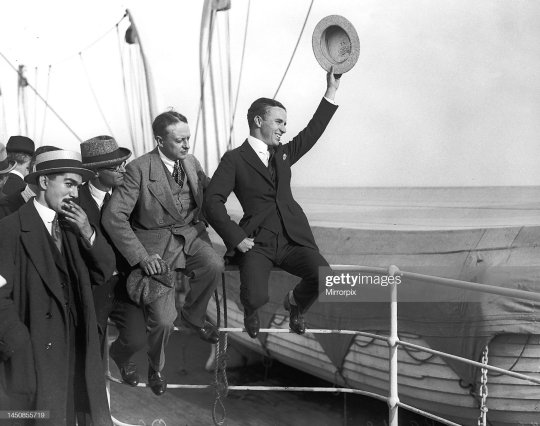
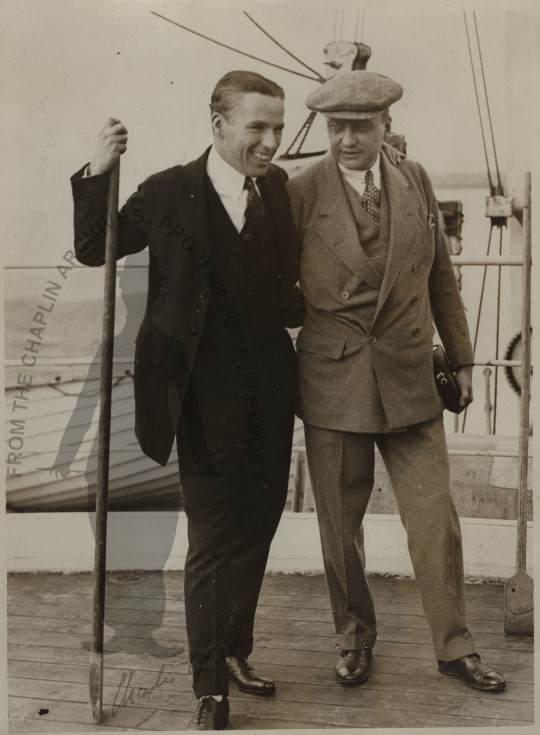
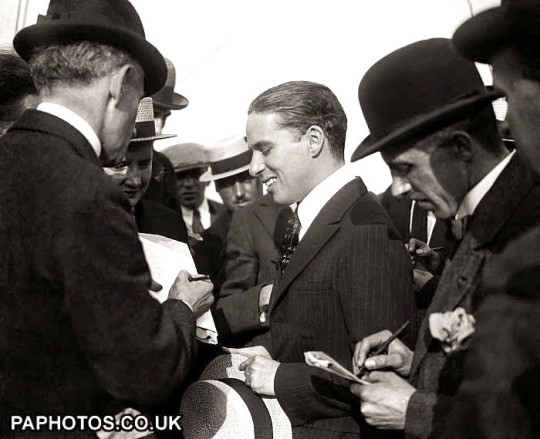
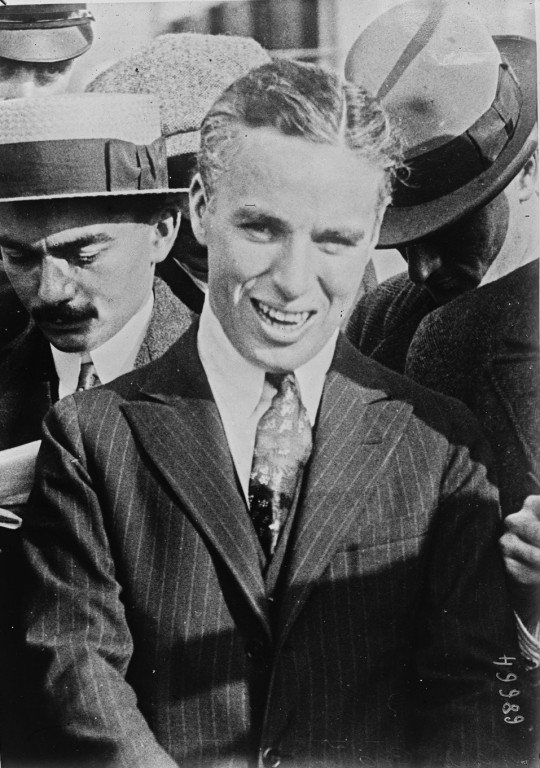
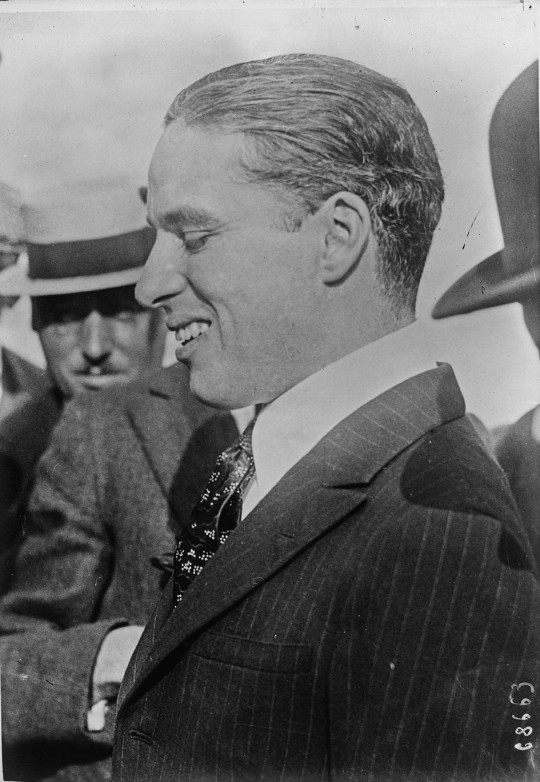
September 9th 1921 - before pulling into Southampton, England (September 10th), the RMS Olympic made a stop to let some passengers off in Cherbourg, France.
Charlie Chaplin got a small taste of the reception that awaited him home in England after a 9 year absence.
An avalanche of reporters speaking both French and English asked him everything from: Why did you come over? Did you bring your make-up? Are you making films over here? to Are you a Bolshevik? What do you think of Lenin? Is it true you are going to be Knighted?
Charlie Chaplin did not speak French despite living in Switzerland for the last 34 years of his life (1953-1977).
As to the question of Knighthood, it would not occur for another 54 years (March 4th 1975)
Photo #2 British playwright Edward Knoblock crossed the Atlantic with him aboard the RMS Olympic.
#charlie chaplin#cherbourg#france#september 9th 1921#also pictured#edward knoblock#british playwright#traveling companion
12 notes
·
View notes
Text
I have a sort-of new job! I’m going to a new library and it will be my library (just me! the librarian!) and this is Exciting
also a bit weird given that i’ve been with the organisation a hot minute and don’t technically have a permanent contract yet but Oh Well
also it looks like it’s all very STEMmy, which is a bit out of my comfort zone. we adapt ^-^
so anyway, i know you guys are nerds, can anyone think of any notable figures in STEMmy subjects I can highlight for black history month? preferably British, but doesn’t have to be - not American though if i can help it
edit: duh mary seacole im an idiot
#nothing against african american peeps as examples of black excellence#but this is for british people and that’s mostly not where black british heritage is#and americans are already like way over represented in terms of black people in my country if that makes sense#by which i mean like.. if you look at what black authors and playwrights we have stuff by in the broader library system#way too much of it is americans talking about the american black experience#and I would like to not be more of the same#yes i can use google i just thought i would also ask my tumblr-local STEMlords
23 notes
·
View notes
Text

Play 20: Phaedra's Love by Sarah Kane
First performed: Gate Theatre, London, 1996
Quote: "There's a thing between us, an awesome fucking thing, can you feel it? It burns. Meant to be. We were. Meant to be." (Phaedra)
Stage direction: [Opens her mouth. No sound comes out.]
Notable cast: the original Gate production included Andrew Scott in a minor role. Laurence Penry-Jones starred in a 2005 revival at the Old Vic.
Notes: Only Kane's second play, Phaedra's Love was commissioned by the Gate Theatre, who asked for a drama inspired by a classical text. Reworking Seneca's Phaedra, Kane produced a clipped, precise distillation of tragedy as narrative. A paean to self-destruction which comments on voyeurism, faith and the inadequacies of love; critical reception was muted when compared to the histrionic moralising that greeted her first play, Blasted (1995). Featuring scenes of astonishing violence and horror, contemporary readings often focus on the brutality and nihilism of Kane's dialogue - but they're missing an extraordinary tenderness which unfolds alongside it. A masterful, troubling work from one of the greatest (and most sorely missed) voices of a generation of theatre.
Read: for the first time, but definitely not the last.
#100plays#phaedra's love#sarah kane#modern drama#modern theatre#seneca#phaedra#andrew scott#laurence penry jones#gate theatre#Kane was just 25 when she wrote Phaedra's Love‚ but her work was already both highly regarded by some champions in the established theatre#(Edward Bond was a mentor of sorts‚ Pinter an admirer) whilst simultaneously provoking outrage among critics and audiences#a remarkable work from an extraordinary playwright‚ one of the most significant voices in British theatre and a burning visionary whose#untimely death robbed us of who knows what kind of incendiary work. Sarah's work has been much reevaluated and appraised in the years since#she took her own life‚ and her current critical standing is beyond anything she could have imagined in her own lifetime; but still academic#work on her texts focus on the perceived nihilism and bleakness of her work‚ equating the graphic violence and strong language with her own#struggles with depression. i think there is some truth there‚ certainly‚ but what I think is missed is the flipside: the tenderness in the#scenes between Hippolytus and Strophe is rarely written about with as much zeal as the horrific scenes which close the play. Blasted‚ the#play which both made her name and brought astonishing condemnation from the press and government‚ remains a distressing and#disturbing work; but again‚ it's rarer to find critical commentary on the revolutionary act of kindness which ends the play. Sarah captured#something deep and true about humanity‚ something cloaked in deep ugliness and terror and violence‚ but at its heart something still very#human and capable of kindness and love in even the most grotesque of situations. and in that she found a unique voice that sees her work#still performed and written about and appreciated as something startling and new and different‚ nearly a quarter century after her death.
11 notes
·
View notes
Text
So back in late 2012, my wife and I auditioned for a local production of No Sex Please, We're British and were both cast. I played the old bank manager, Mr. Bromhead (I used stage makeup lol), and one of my lines referenced a play, George and Margaret, by Gerald Savory. And I did some Internet research and quickly discovered that this is a real play.
It was also around that time I decided to see how Inter-Library Loans worked, and so the very first thing I decided to see if I could find was a copy of this play. And sure enough, it was out there, they found a copy in a university library within the state.
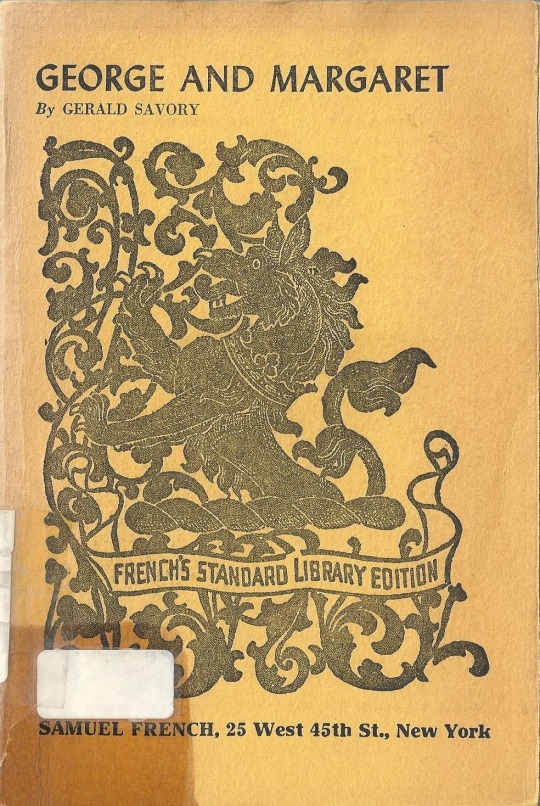
What arrived was this old school "library edition" of the Samuel French script, published and printed in 1938 and long out of print.
Anyway, the lesson was that Inter-Library Loans are amazing and so I started using them a lot. I checked out plays consistently for three and a half years. So I read a whole lot of plays because I was able to check them out for free at the nearby public library.
I'm hoping to start doing that again.
#theater#theatre#stage play#george and margaret#gerald savory#playwright#1930s#1930s literature#dramatic liturature#no sex please we're british#anthony mariott#alistair foot
1 note
·
View note
Text

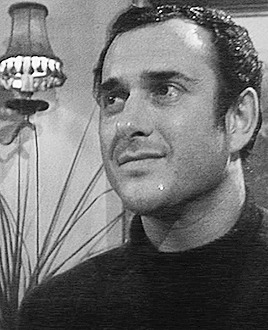


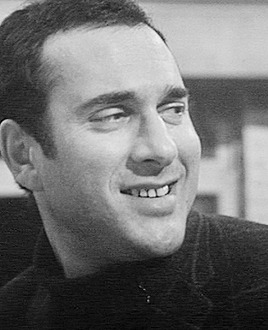
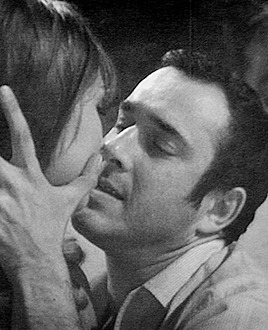
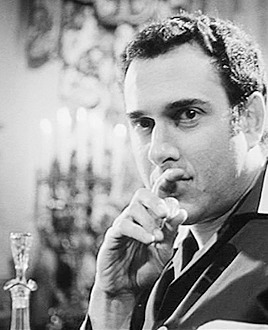

Harold Pinter in THE BASEMENT (1967)
#he played sinister so well :')#harold pinter#60s#60s film#pinter films#60s theatre#the basement#playwright#british playwright
0 notes
Text
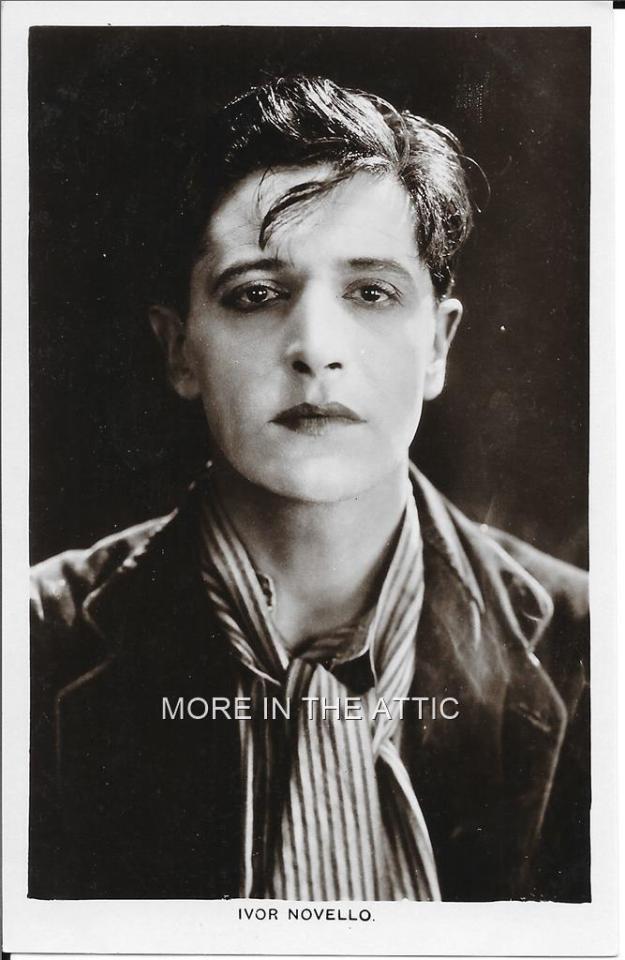
Ivor Novello for "The Rat" (1925)
#ivor novello#actor#film actor#british actor#composer#songwriter#playwright#stage actor#1920s#welsh#postcard
1 note
·
View note
Photo

Lucy Moss
Gender: Female
Sexuality: Lesbian
DOB: 13 January 1994
Ethnicity: White - British
Occupation: Playwright, director, composer, musician, songwriter
Note: As director of most Six productions, Moss became the youngest ever female director of a Broadway musical at 26.
#Lucy Moss#lesbianism#wlw#lgbt#lgbtq#female#lesbian#1994#white#british#playwright#director#composer#songwriter#musician#writer#popular post#popular
198 notes
·
View notes
Text
Noël Coward: The Master
A proper post today on Sir Noël Coward (1899-1973), our previous one being of the perfunctory sort from the early days of the blog when I much less ambitious about the sort of things I put down here. Why has it taken so long? Well, he’s so major and there’s so much to talk about, and then there’s the daunting reality that I only really know about a dozen of his works, and there are so many dozens…

View On WordPress
1 note
·
View note
Text
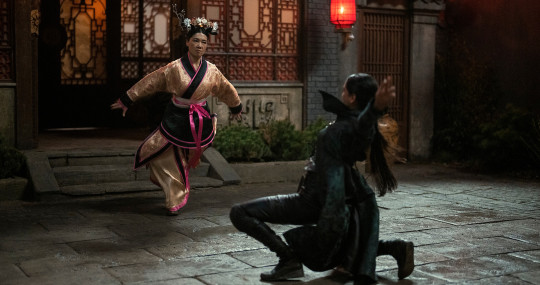
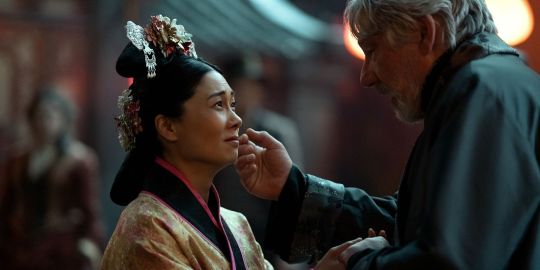
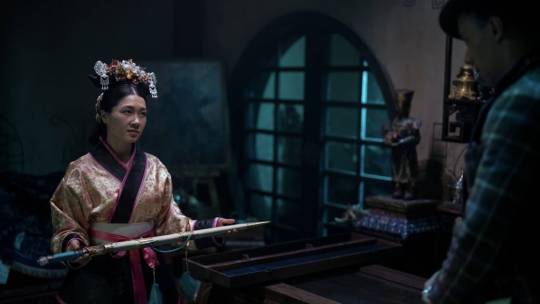



I so enjoyed being introduced to Tuyen Do, a British Vietnamese actress, who is also a talented playwright. Her scenes as Sankta Neyar, and the myth of the Neshyenyer Blade, in Shadow and Bones are some of my favorites. She completely embodied a living saint with regal grace, quiet power and nuance. And her Love Speech is both memorable and brutal. I wanted to do a shout out because it's difficult to find much press for her. Tuyen Do is awesome.
The play dispelling the British Vietnamese 'nail-bar' cliche - BBC News
0 notes
Text
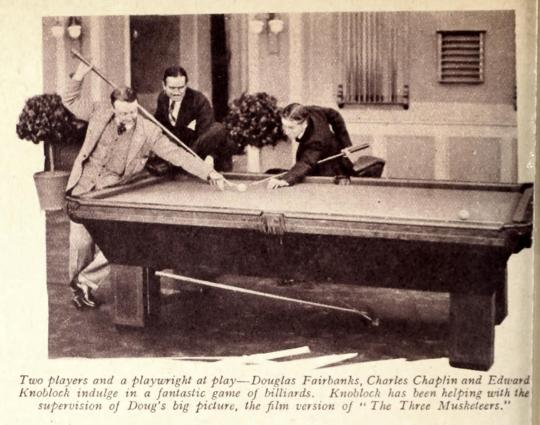
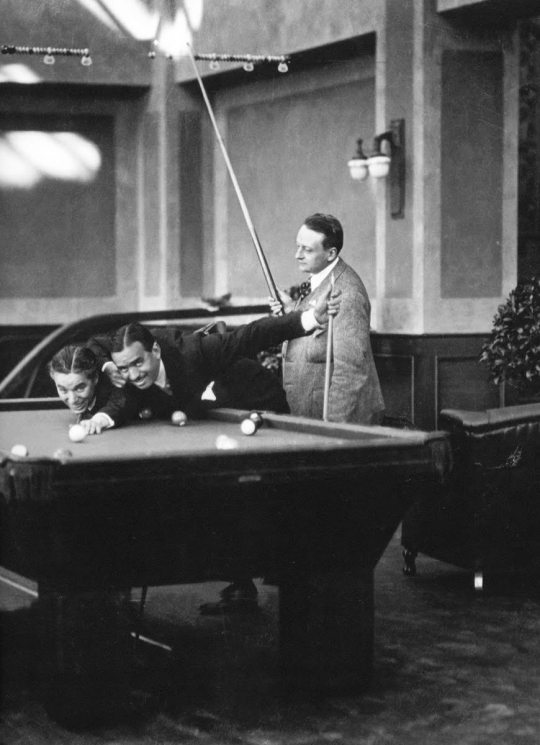
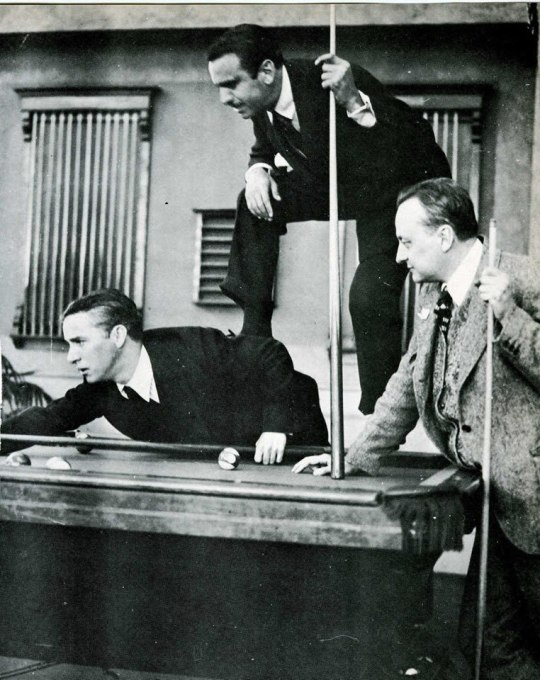
Taking in a game of pool. Charlie Chaplin, Douglas Fairbanks and British Playwright Edward Knoblock, circa 1922.
9 notes
·
View notes
Text
Santa Clara Players opens its 2023 – 2024 season with the world premiere of the murder mystery spoof “Agatha Crusty and the Medieval Murders” by British playwright Derek Webb, playing Oct. 13 – Nov. 4. “Having done the North American Premieres of two prior Crusty plays, it’s only fitting to do a World Premiere,” said SCP producer George Doeltz. “That’s mainly due, I think, to the fact that we asked first.” (A trial run took place last April in Wales, where Webb resides). Read more at svvoice.com
#santa clara players#scp#season#George Doeltz#world premiere#Sara Hough#director#Agatha Crusty#British playwright#derek webb#svvoice
0 notes